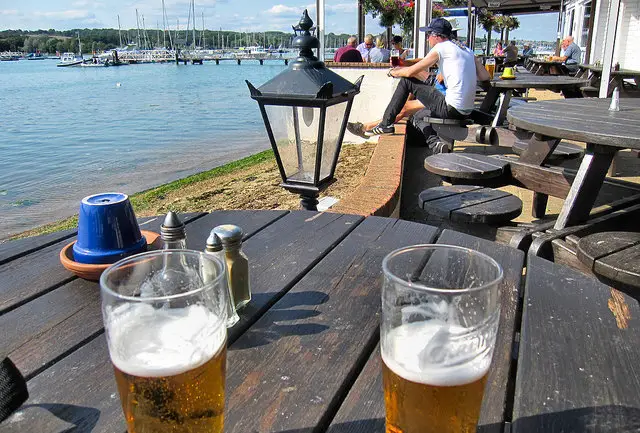The Isle of Wight has lost ten of its pubs since 2010, according to official figures.
The figures from the Office for National Statistics show that in 2010 there were 130 pubs and bars, but by 2017 that had fallen to 120.
National trend
Across the UK 5,745 pubs closed over the period, and there are 54 local authorities where 30 or more shut.
Pubs have been pointing the finger of blame at the taxman for their troubles, complaining about the duty on beer, VAT levels and the cost of business rates.
Long Live the Local
Britain’s Beer Alliance, a group of organisations in the pub and brewing sector, has started a campaign called Long Live the Local with a petition and calls for people to write to their MP to have beer duty reduced.
Brigid Simmonds, chief executive of the British Beer and Pub Association, said:
“We are calling on the Government to cut beer duty in the upcoming November budget.
“Seven in ten alcoholic drinks sold in a pub are beer, so cutting beer duty is the most direct way of helping pubs. This is why we are backing the Long Live the Local campaign to cut beer tax.”
Government response
A spokesperson for the Treasury said:
“90% of pubs across the country can benefit from the business rates relief introduced at Budget 2017, which could save them up to £1,000 a year.
“In addition, both businesses and their customers have saved around £3 billion since 2013 thanks to changes to alcohol duty.”
Slight upturn on the Island
The latest data from the ONS shows that between 2016 and 2017, 655 pubs and bars called time for the last time.
On the Isle of Wight there was a slight upturn with numbers up by around five.
A change in consumer habits, with people drinking at home more often, has been blamed for fewer people visiting pubs.
Pubs offer more than a drink
Ms Simmonds said that many now offered much more than just a drink.
She said:
“Pubs have responded to changing drinking habits with a more diverse offering, such as coffee, live music, wifi, creating experiences and food. Pubs now serve one billion meals a year and are at the forefront of modern British cooking. They also have 50,000 bedrooms.”
Often the last remaining public meeting space
CAMRA, the campaign for real ale, said that pubs play a vital role in communities.
Tom Stainer, the chief communications officer, said:
“In many areas and villages, they provide the last remaining public meeting space, with meeting halls and post offices already lost.
“They also create jobs and bring money into local areas, which tend to be spent in the local area, as compared to large chain cafes. Many pubs help to support the night time economy in town centres and create safer communities after nightfall.”
Bucking the decline
There are 21 areas of the country that have bucked the decline and have more pubs now than they had in 2010.
Top of the list is East London hipster hangout Hackney, which has a thriving nightlife fuelled, in part, by craft beer. It had 55 more bars in 2017 than it did in 2010.
To avoid identifying individual pubs, the ONS has rounded the numbers.
Article shared by Data Reporter as part of OnTheWight’s collaboration with Press Association and Urbs Media
Image: ronsaunders47 under CC BY 2.0





